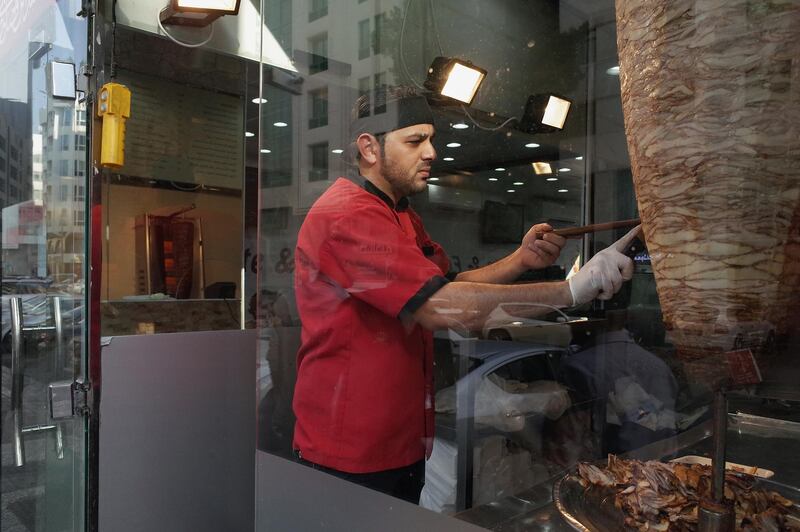The year is barely two weeks old and a new word has already become part of the social lexicon – Dareeba, which comes from the root word daraba, and in English translates "to strike".
While this, admittedly, is not the most positive way to describe the region's VAT tax, the effect it has had on my usually busy Abu Dhabi neighbourhood, is well, best described as striking.
I live in one of the many small apartments that make up the Darat Al Miyah community in Khalidiyah, which is split in half by a long narrow street linking us to Airport Road and Mubarak Bin Mohammed Street.
Food is the star of the show here, and over the last five years, our busy little strip has become a haven for small but thriving restaurants offering an array of regional fast foods such as the ever dependable paratha (House of Tea), koshari (Khafayef) and shawarma bil sarookh (the spicy "rocket" shawarma from Molouk Al Shawarma).
Waiters are the lifeblood of Darat Al Miyah, whether they are busying themselves around me inside or surrounding cars with menus, their cheery presence always comforts me at the end of a long day.
Then on January 1, Dareeba happened and those smiles have now curled into looks of consternation. Pockets now carry small calculators as well as menus, and beads of sweat are not caused by the heat but as a result of the challenge of subtracting Dh38.65 from a Dh200 note.
The days of the cheerful and easy transaction are gone. In Molouk Al Shawarma, the normally crooning Syrian counter staff now approach each sale with the solemn silence indicative of a geometry exam.
Meanwhile, at Zubaidah Laundry, Dareeba has put an end to the age-old tradition of "hissab" – the tab. Where before my laundry bills were recorded in a tattered blue book and settled fortnightly, now payment is taken care of on the spot.
___________________
Read more:
Words of wisdom for life, not just a January resolution
Throw caution to the wind and set bold, ambitious goals for yourself
Examining the past should be an uncomfortable experience
___________________
A bigger revolution has taken place at Al Noukada coffee shop. Service was painfully slow on January 1 as all staff were undergoing intensive training on how to use a cash till.
Noticing the wonderment of one young man as the trainer demonstrated how to input the sale of a pomegranate juice in the shiny new machine, I wondered if this was how it felt in the 18th-century when steam-powered cotton-spinning machines first arrived in British factories during the Industrial Revolution.
Despite all of this change, businesses will endure and my resilient street will survive another day. Chatting to the shop owners and staff, there is a general consensus that they have grown older and wiser and before long those big smiles will return.
"We all have to be more responsible now but that's life," says Zubair while making me one of his brilliant Turkish coffees at Al Anoud. "Every dirham is counted and this will make all of us more organized. Khalas, now we are in Dareeba time."
His was one of the many to use this word over the last couple of weeks. I have heard Dareeba used a greeting (how's dareeba going) and as an emotion (How's your day bro? Answer: dareeba). And in true Darat Al Miyah fashion, it will only be a matter of time before a Dareeba Cafe or laundry will open up.






